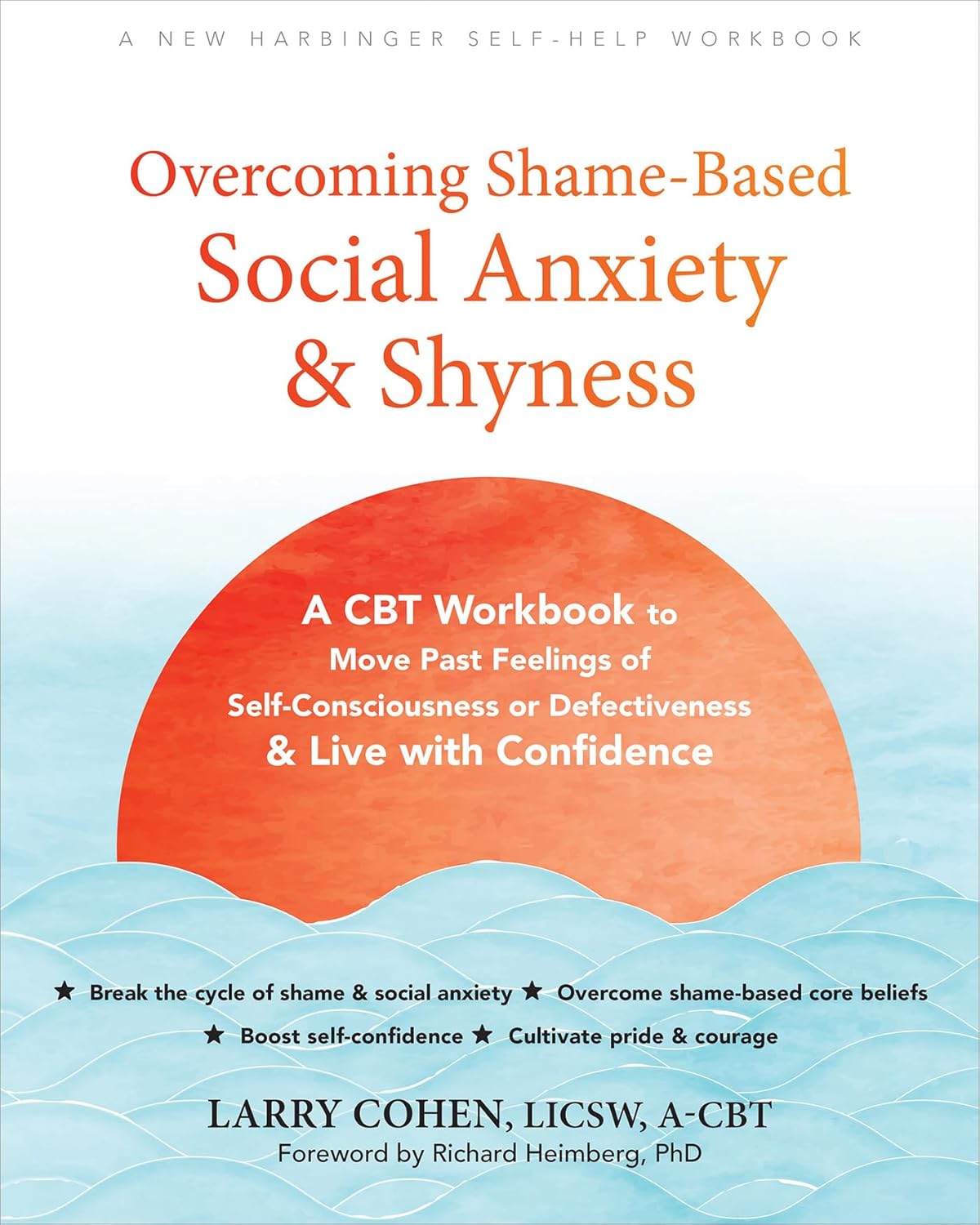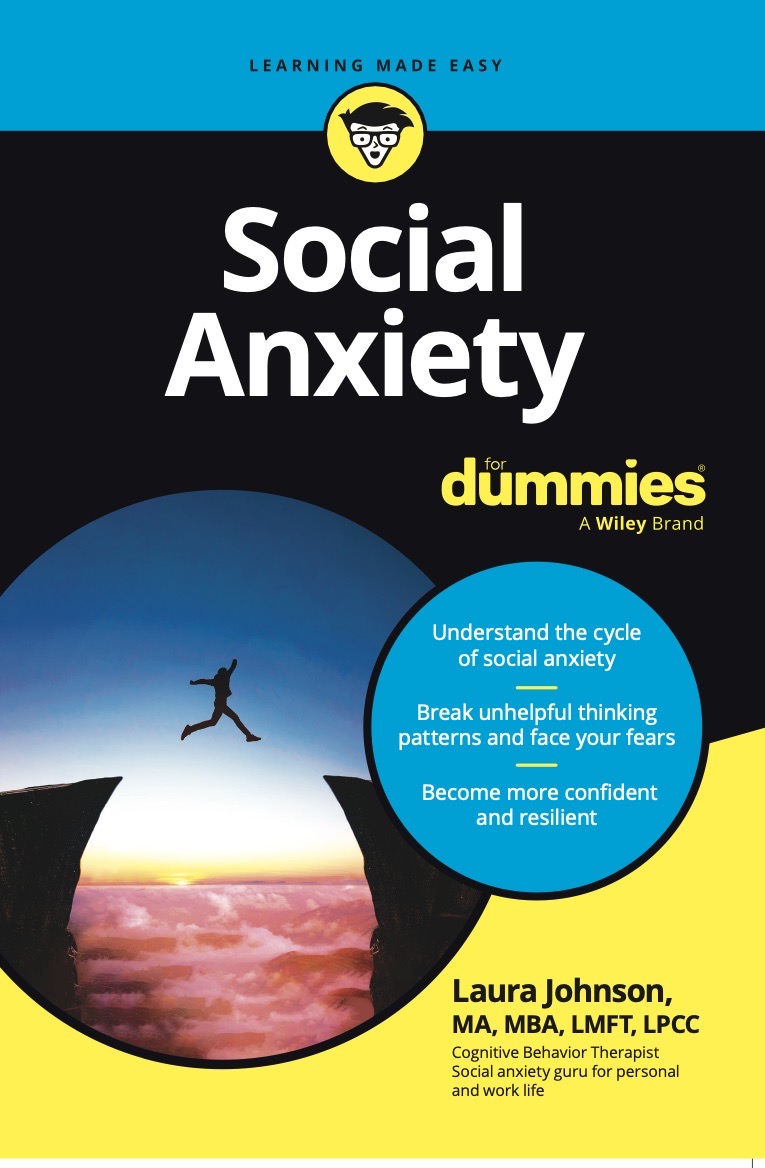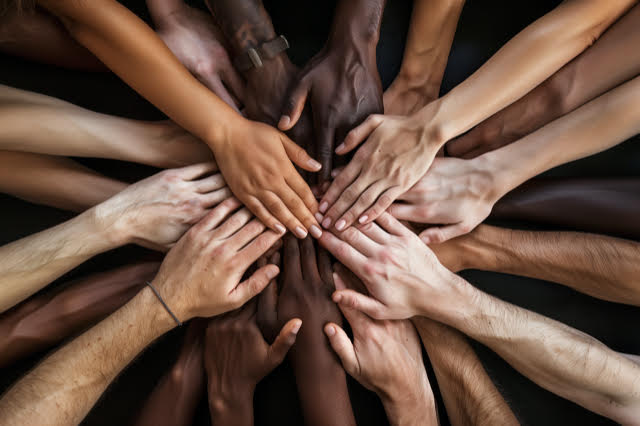
Romance, a Minefield of Social Anxiety Triggers
Many aspects of pursuing romantic relationships are major social anxiety triggers for many people. How do you relate to these scenarios?
• Initiating conversation with someone you find attractive.
• Sending a first message online to someone you find attractive.
• Conversing in person with someone you find attractive.
• Having a phone / video conversation with someone you find attractive, but don’t know well.
• Complimenting or otherwise flirting with someone you find attractive, but don’t know well.
• Sharing contact information with someone you find attractive.
• Inviting someone you find attractive out to meet one on one, especially for the first time.
• Going out one on one with someone you find attractive, especially for the first time.
• Going out in a small group (a double date or group of friends) with someone you find attractive.
• Asserting your opinion or feelings about something with someone you are interested in when there is the possibility of disagreement.
• Verbally expressing your feelings toward someone you are interested in for the first time.
• Physically expressing affection for the first time with someone you are interested in: a touch, a hug, a caress, a kiss.
• Initiating conversation with someone you’ve been dating about how you both view the relationship.
• Expressing to someone you’ve been dating your concerns and feelings about something that has been bothering in your relationship with that person.
• Being naked and/or sexual with someone you are interested in.

Safety-Seeking Behaviors: the Crutches We Lean on Too Much
It’s perfectly normal to feel anxious in any of the above situations. In fact, our nervousness can be useful if it leads us to be sensitive to the other person’s feelings or to improve our behavior in ways that help us pursue our personal goals and values. However, many persons with social anxiety have learned to cope with these triggers by over-using safety-seeking behaviors: crutches we lean on too much in an effort to lessen our anxiety and lessen the risk we perceive, but which tend to backfire by making us more anxious and hurting our interactions and our relationships.
Here are examples of some of these safety-seeking behaviors we often lean on too much. Do you rely on any of these as your go-to coping strategies?
• Overt avoidance, eg.: not initiating a conversation; not inviting someone out; not expressing interest verbally or physically; not responding to messages; not asserting your opinions, feelings and concerns.
• Covert avoidance, eg.: asking lots of questions and talking very little about yourself; agreeing when you don’t actually agree; relying heavily on using humor or talking only about light matters to avoid letting the person see other sides of you; ending your conversation early when there is a moment of awkwardness; repeatedly focusing your dates on activities that are enjoyable but which minimize time for discussion; becoming silent, distant or displeasing to passively convey your dissatisfaction or anger.
• Mental behaviors, eg.: self-monitoring your anxiety symptoms and trying to tamp them down during interactions in an effort to improve how you appear; critiquing in your mind what you’ve just said or scripting what to say next in an effort to improve how you converse; focusing on any possible signs of negative reaction from the other person in an effort to avoid further risk; focusing on and evaluating your “performance” while being sexual; ruminating or beating yourself up for long periods after an interaction about things you think may not have gone well in an effort to avoid further problems.
You may be thinking that some of these safety-seeking behaviors are useful: that they lessen your anxiety and minimize risk taking. And you may be right…but just in the very short run. Beyond the initial moment, relying on these crutches ends up hurting our interactions and relationships, and increasing our anxiety later on.
For one thing, by relying on safety-seeking behaviors we don’t get to learn how things would have gone if instead we behaved more directly without leaning on crutches. Even if things do go well, we tend to credit the crutch, not ourselves, preventing us from growing in self-confidence and making it likely we will be anxious the next time.
These behaviors are also distracting: we focus on our feelings, concerns and performance, rather than being absorbed in the conversation and activity. This distraction often makes our conversations and interactions more awkward, less flowing and natural. Ironically, repeatedly trying to script what to say next makes it harder to have things to say because it blocks our mind from free-associating in reaction to what is being said. And evaluating our conversational or sexual “performance” while we are performing negatively impacts how our performance goes!
Avoiding saying much about ourselves or the relationship, and avoiding expressing our opinions, feelings and concerns, prevents the other person from getting to know us more intimately, and keeps the relationship from growing more deeply. It also makes it harder to resolve conflicts or concerns, which leads to the prolonging and worsening of problems that damage the relationship.

Bad Attitudes: Our Distorted Thoughts and Beliefs
Why do we feel so anxious and rely so heavily on safety-seeking behaviors that backfire? The distorted attitudes we have about ourselves, about other people and about rejection are the key to the problem.
We have all sorts of disturbing hot thoughts when we are anxious during or anticipating a potential romantic interaction. Hot thoughts are ideas, self-talk and mental images that are imbued with anxiety or other unpleasant feelings. Typically, they have to do with the concern that we may handle the conversation / interaction badly, appear anxious, embarrass ourselves, make a bad impression or get rejected.
Well, all these things do happen, don’t they? Absolutely! The problem arises by the meaning we attach to these ordinary, unpleasant life occurrences, as well as by our overestimating the likelihood they will occur and how badly they will impact us if they do. We personalize rejection: interpreting it as a sign there is something fundamentally wrong with us. And we are perfectionistic about what it takes to be liked / loved: assuming that any flaw or misstep will lead the other person to judge us as not good enough.
This personalization and perfectionism stems from our underlying core beliefs, assumptions and personal rules: attitudes we have about ourselves, about other people, what it takes to be liked/loved, and what rejection means. Some beliefs are absolute (I am…, others are…, rejection means….); some are conditional (if…then…); and some are personal rules (shoulds, musts). Do you maintain any of these beliefs?:
• I’m socially inept.
• I’m uninteresting / unattractive / unintelligent / unsuccessful.
• Once people get to know me well, they’ll see my deficiencies and will reject me.
• If people see that I’m anxious, then they’ll judge me as weak / weird, and will reject me.
• If I say / do something wrong or displeasing, then I’ll be judged and rejected.
• I must meet other people’s expectations of me completely.
• I should never displease or disagree with others, or hurt their feelings.
• People can’t be trusted. They’ll hurt me or take advantage of me if I show any vulnerability.
• People will only like / love me if I fully please them.
• Rejection means that there is something fundamentally wrong with me, and that I’ll never find love.
These beliefs act like glasses we wear: they profoundly affect the way we see our experiences, whether or not we are aware of having the glasses on. Beliefs generate our hot thoughts and social anxiety in varied situations, and lead us to relying on self-defeating safety-seeking behaviors in an effort to cope. Our world looks very different when we change our glasses / beliefs!

It’s the Match, Not Ourselves!
The core themes of our socially anxious beliefs about romance are personalization (rejection is a sign of fundamental deficiency) and perfectionism (I must be completely pleasing to be liked / loved). So what is the alternative? Consider these alternative core beliefs:
• Rejection is a judgment of the match, not myself. It just means the other person has different tastes, and thinks the match isn’t right for him / her. It doesn’t predict whether I’ll be a good match for someone else at another time.
• People like, love and respect me for who I am, not simply for being pleasing to them.
This depersonalized, non-perfectionistic view of rejection and love is key to overcoming our social anxiety in romance. Rejection will still often be disappointing and hurtful, but not nearly so painful when we view it as a mismatch, not a judgment of our worth and our future. We’ll still often feel a bit nervous about taking romantic risks, but we’ll have the courage to do so when we don’t see the outcome as a reflection of our worth, just the match. And we’ll be much more willing to stop leaning on the crutches of our self-defeating safety-seeking behaviors if we view loving as the connection between people, not a judgment of your lovability.

How Do I Make that Change in Thinking?
Cognitive-behavioral therapy (CBT) is the most effective treatment for social anxiety for most people, according to many outcoming studies. Learning to overcome the social anxiety that has held you back in pursuing dating and romance means working with a cognitive-behavioral therapist who will guide you in learning and applying the following CBT strategies and skills:
Cognitive restructuring (aka reframing): identifying, challenging and modifying the hot thoughts and underlying beliefs that contribute to your anxiety, by gathering and evaluating the evidence that these attitudes are distorted and self-defeating. For example, use a cognitive restructuring worksheet or app before a behavioral experiment (eg. a social activity or a date) to help you lessen your anticipatory anxiety and identify behavioral goals to work on.
Behavioral experiments (aka exposures): taking a series of small risks when pursuing romantic relationships while dropping your safety-seeking behaviors and focusing mindfully on the conversation and activity. Experiments will help you gather evidence to test your hot thoughts and underlying beliefs. For example: initiate conversations with persons you’re attracted to; compliment people you’re attracted to; ask someone you’re attracted to out on a date; go out on a date.
External mindfulness (aka curiosity training): getting mentally absorbed in the conversation and activity while socializing, pursuing romance and doing behavioral experiments, and also defusing from any troubling thoughts and feelings by treating them as background noise. While we usually practice external mindfulness during conversation and other interactions by focusing with curiosity on the what you see and hear in the moment, it is also important to get out of our heads and into the moment when being physically intimate to help overcome sexual performance anxiety.
Paradoxical experiments (aka de-catastrophizing / shame-attacking / social mishap exposures): taking a series of risks where you deliberately try to provoke the feared outcome (eg. embarrassment, judgment, criticism, appearing anxious, rejection) in order to learn through experience that it’s not so bad or personal, and that you can cope with it well. For example: make your anxiety symptoms obvious or verbally acknowledge feeling anxious while interacting with people you’re attracted to; say something stupid or ask a silly question during these interactions; ask a series of people out and with the goal of collecting rejections rather than getting dates. Paradoxical experiments tend to be very scary at first, but they become liberating and even fun as you get into it and start to realize that nothing happens that that you can’t handle. At first, it’s a lot easier and more fun to do these together with your therapist or a friend.
Head-held-high assertions (aka assertive defense of the self): using role plays, imagery and paradoxical experiments to practice responding with dignity in the event that your fears come true (eg. embarrassment, judgment, criticism, appearing anxious, rejection) to help you develop the confidence that you can handle it without shame. For example, if your fear is that you will appear anxious or awkward when interacting with someone you’re attracted to, you can practice using an assertion such as: “Don’t mind me. I get a little nervous talking to new people. But I’m enjoying our conversation.” If your fear is that someone will reject you, you can practice responding to a rejection with something like: “OK. I’m sorry we’re not a good match. Good luck to you.”
Surveys: write and conduct surveys of many people to gather evidence to test your core beliefs. For example, you might conduct a two-question survey in which you ask many people: 1. How many times have you experienced romantic rejection? 2. When you are rejected romantically, what does that mean?: a. there is something fundamentally wrong with you; b. the two of you aren’t a good match; c. other: ____________________.

But What If It Really Is Me?
You may be thinking that all this is fine for some people, but what if you really are fundamentally deficient, and that’s why you are socially anxious and unsuccessful in pursuing romantic relations and relationships? Indeed, some people are viewed as attractive—in appearance and in personality—by more people than are other people. But remember what your goals are. Are you seeking to be among the most popular people around? Or are you seeking to have satisfying romantic relations and relationships with one or a few persons?
Also look at the evidence around you. Do you know of people whom you think of as unattractive in appearance or in personality but who have romantic relations or relationships that seem satisfying to them?
But what if you’ve been repeatedly unsuccessful in your pursuit of romantic relations and relationships? Doesn’t that mean there is something fundamentally wrong with you? Well, it’s much more likely that there is something wrong with your attitude and behavior, not who you are: that you are relying heavily on safety-seeking behaviors that get in the way of successfully pursuing your romantic goals. Your cognitive-behavioral therapist can help you identify these self-defeating behaviors you rely on, and help you do a series of experiments in which you let go of these crutches as you pursue your romantic goals.





